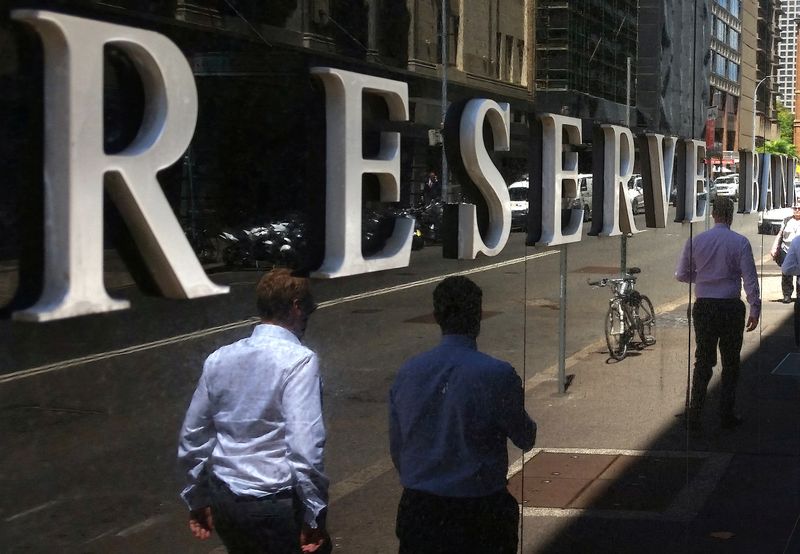SYDNEY, July 18 (Reuters) – Australia’s central bank decided to keep interest rates steady this month as policy was clearly restrictive and there was a risk a squeeze on household finances could lead to a sharp downturn and higher unemployment.
However, the bank retained a warning that some tightening may still be required to bring inflation to heel, wary that the wider effects on inflation from higher rents, weak productivity and higher electricity prices had not been fully captured.
Minutes of the July 4 policy meeting out on Tuesday showed the Reserve Bank of Australia’s (RBA) board considered raising the cash rate by 25 basis points to 4.35%, before deciding on a pause, acknowledging that both set of arguments were strong.
“Noting both the uncertainty around the outlook and the significant increase in interest rates to date, member agreed to hold the cash steady and reassess the situation at the August meeting,” the minutes showed.
The stance of monetary policy was already restrictive and is set to tighten further given the significant resets of low-fixed rate loans ahead. Mortgage interest payments were already at a record share of household disposable income in May.
The RBA this month left interest rates unchanged at 4.1%, delivering the second pause since May last year when it started raising interest rates by a whopping 400 basis points in just 14 months.
Markets are leaning towards a pause from the RBA in August although they have fully priced in a quarter-point increase in interest rates by the end of the year.
The minutes noted that a pull-back in inflation, with monthly reading showing that gains in consumer prices slowed to a 13-month low of 5.6% in May, would help mitigate the risk of a rise in medium term inflation expectations.
There is also a risk that economic growth slows by more than expected, with the board conscious of the possibility that unemployment rate would likely rise beyond the rate required to bring inflation down, which was forecast to be at about 4.5%.
“Members observed that there was considerable uncertainty about the resilience of household consumption and that the squeeze on many households’ finances could result in consumption slowing more sharply than implied by the current forecasts.”
The board agreed to reassess the situation in August, waiting for additional data on inflation, the global economy, the labour market and household spending, as well as an updated set of staff forecasts and a revised assess of risks.
(Reporting by Stella Qiu; Editing by Wayne Cole)
Keywords: AUSTRALIA RBA/MINUTES
